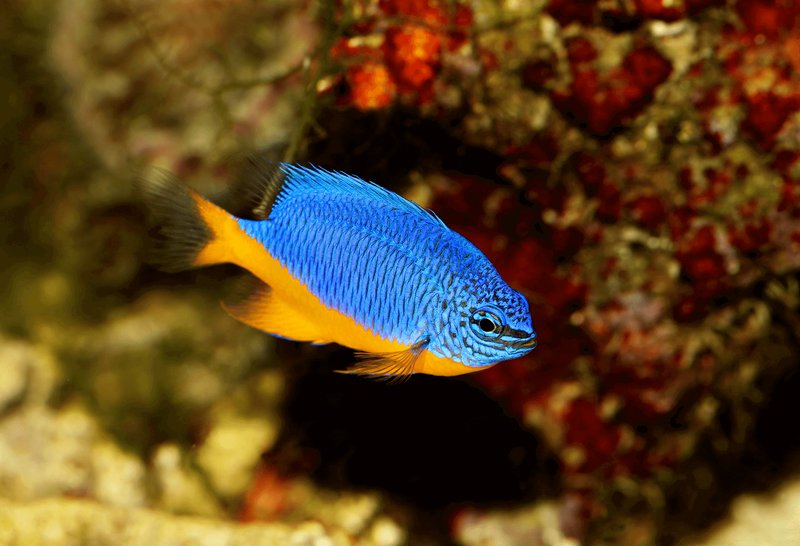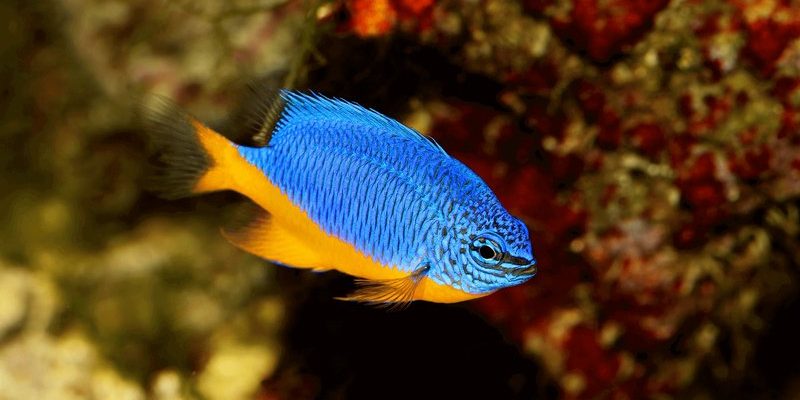
Imagine you’re a doctor for your fish; you have to pay close attention to their behavior, water quality, and even their diet to ensure they thrive. Whether you’re an experienced aquarist or just starting out with your 20-gallon tank, knowing the signs of distress in your damselfish is crucial. In this article, we’ll dive deep into the most common health issues they face and how to keep them swimming happily and healthily.
Understanding Common Health Problems in Damsel Fish
Damsel fish are generally hardy, but they can still fall victim to several health problems. A lot of these issues stem from poor water quality, inappropriate tank mates, or even bad diets. Here are five common health problems and how to spot them.
Ich (White Spot Disease)
Ich is one of the most notorious ailments that can affect damselfish, and it’s like a pesky cold in the aquatic world. It’s caused by a parasite that attaches itself to your fish, leading to tiny white spots on their skin. You might notice your fish scratching against rocks or tank decorations, almost like they’re trying to itch a nagging itch.
To prevent ich, ensure your water quality is top-notch. Regularly check for ammonia, nitrites, and nitrates. Quarantine new fish before introducing them to your tank. Trust me, it’s worth the extra effort—nobody wants a tank full of sick fish.
Fin Rot
Fin rot is another common issue, often resembling a tear in your fish’s fin that’s infected. It can happen due to poor water conditions or bacterial infections. If you see your damselfish with frayed or discolored fins, it’s time for some immediate action.
Prevention is straightforward: keep the tank clean and maintain good water quality. You might also want to watch for bullying tank mates—aggressive fish can cause injury, making your damsels more susceptible to fin rot.
Swim Bladder Disorder
Imagine being on a boat that’s taking on too much water; you’d be struggling to stay afloat! That’s similar to what a fish with swim bladder disorder experiences. This issue affects a fish’s ability to control its buoyancy, leading to abnormal swimming patterns. Your damsel might be floating sideways or struggling to stay at the bottom.
Feed your fish high-quality flakes or pellets to prevent overfeeding, which can lead to this disorder. And don’t forget to include some frozen foods like brine shrimp or bloodworms for variety—your fish will thank you!
Gill Flukes
These nasty little parasites can cause serious problems for your damselfish. Gill flukes lead to labored breathing and can make your fish less active. You might notice them gasping at the water surface, which is never a good sign.
To keep your fish safe, make sure you regularly clean your tank and maintain optimal water conditions. If you suspect gill flukes, a treatment plan involving medicated baths or dips might be necessary. Always consult with a local aquatics expert if you’re unsure.
Nutritional Deficiencies
Just like us, fish need a balanced diet to thrive. Damsel fish are known for their particular taste, and if they’re not eating well, they can develop health issues. A variety of foods, including marine flakes, frozen foods, and even some veggies, is important.
If your damselfish starts to look pale or is not as lively as usual, it could be a sign of poor nutrition. Rotating their diet can keep them healthy and happy, just like enjoying different foods keeps our meals exciting.
Best Practices for Preventing Health Problems
Prevention truly is the best medicine when it comes to keeping your damselfish healthy. Here are some simple best practices you can follow.
Regular Water Testing and Quality Checks
Checking your water quality is like making sure your home has a clean and safe environment. Invest in a good quality test kit to monitor pH levels, ammonia, nitrites, and nitrates. Keeping these parameters stable will help fend off many common diseases.
Also, conduct regular water changes—about 10-15% weekly can do wonders for maintaining the balance in your tank. It’s a small effort that can lead to big gains in your fish’s health.
Proper Tank Setup
When setting up your aquarium, ensure you’ve got plenty of hiding spots and swimming space. Using rocks, plants, and decorations is great, but don’t overcrowd the tank. Providing a comfortable environment helps reduce stress, which can lead to health problems.
Also, pay attention to tank mates. Not all fish get along, and a bully can cause stress or injuries to your damselfish. Research potential companions that won’t stress your damsels out.
Consistent and Balanced Diet
Feeding your damselfish a balanced diet is key to preventing a variety of health issues. Look for high-quality fish food made for marine species, and include a mix of frozen or live food to provide the nutrients they need.
Consider feeding them multiple times a day in small amounts, which is often better than one big meal. This approach can help prevent digestive issues and nutritional deficiencies.
Handling New Fish with Care
If you’re introducing new fish into your tank, don’t rush the process. Always quarantine new arrivals for at least two weeks to ensure they’re healthy before integrating them with your existing fish. This step can prevent the spread of diseases like ich or gill flukes.
During this quarantine period, observe their behavior and eating habits. If anything seems off, you’ll have a chance to treat them before they can impact your damselfish.
Keeping damselfish can be a rewarding experience, but it comes with responsibilities. By understanding common health problems and how to prevent them, you’ll create a thriving environment for your aquatic friends. Remember that keeping a close eye on water quality, providing a balanced diet, and being mindful of their tank mates can go a long way.
In the end, your damselfish are not just vibrant little creatures; they’re part of a delicate ecosystem you’re responsible for nurturing. Treat them with care, and they’ll reward you with their lively antics and beauty for years to come. Happy fishkeeping!

